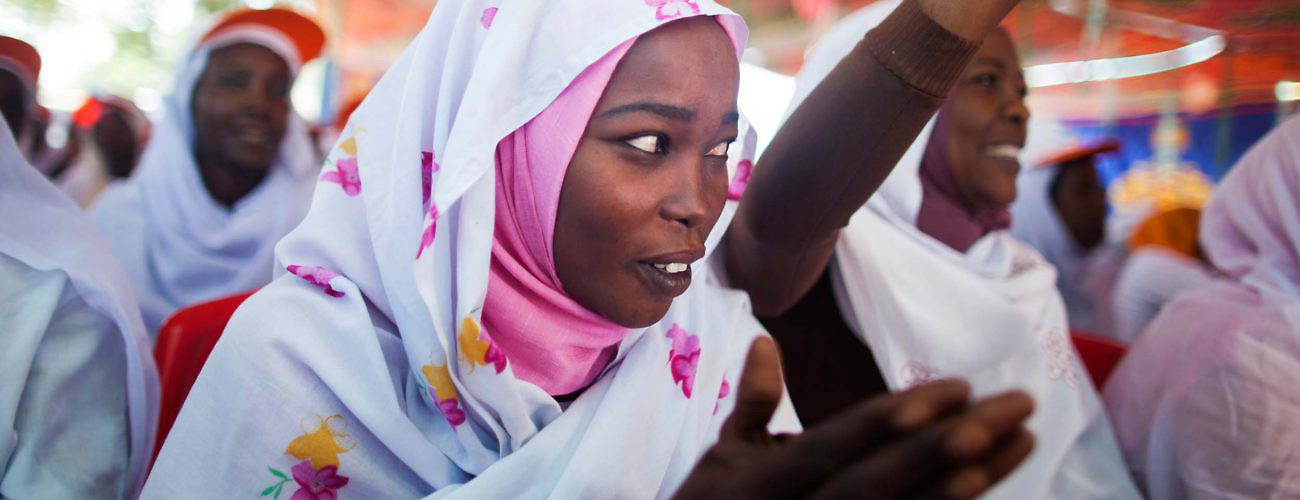Women at an event to commemorate the 16 Days of Activism against Gender Violence, organized by UNAMID Gender Unit in El Fasher, North Darfur. (Albert González Farran, UNAMID)
Over the past two decades, an abundance of legal and policy frameworks in the multilateral system have focused on women’s security and empowerment. Women, however, continue to be poorly represented in formal peacemaking activities, and they suffer disproportionately from the indirect effects of conflict. The credibility of the multilateral system itself depends on progress in this area, due to compelling evidence that inclusive societies are more likely to be peaceful and stable.
On the sixteenth anniversary of Security Council Resolution 1325, this policy paper explores key challenges and developments related to women, peace, and security. This is the first in a series of fifteen policy papers produced by the Independent Commission on Multilateralism (ICM), a two-year project launched by IPI in September 2014 to identify how the multilateral system can be made more “fit for purpose” for twenty-first-century challenges.
Based on extensive consultations with representatives of states, various UN entities, and civil society, as well as subject-matter experts, this paper details recommendations laid out in the ICM’s final report, published in September 2016. To improve multilateral engagement on women, peace, and security, it recommends several major shifts:
- Reimagine traditional approaches to peace and security, from conceptions of peace and security to the identification of key actors and the goals of peace processes.
- Achieve a unified, holistic, and coherent approach to improve women’s security and participation, from shifts in social norms to improvements in education and increased women’s representation in politics and policymaking.
- Build an inclusive and legitimate multilateral system that embraces the women, peace, and security agenda as key to its credibility and effectiveness.
For other IPI news, events, and publications about women, peace, and security, see here.








